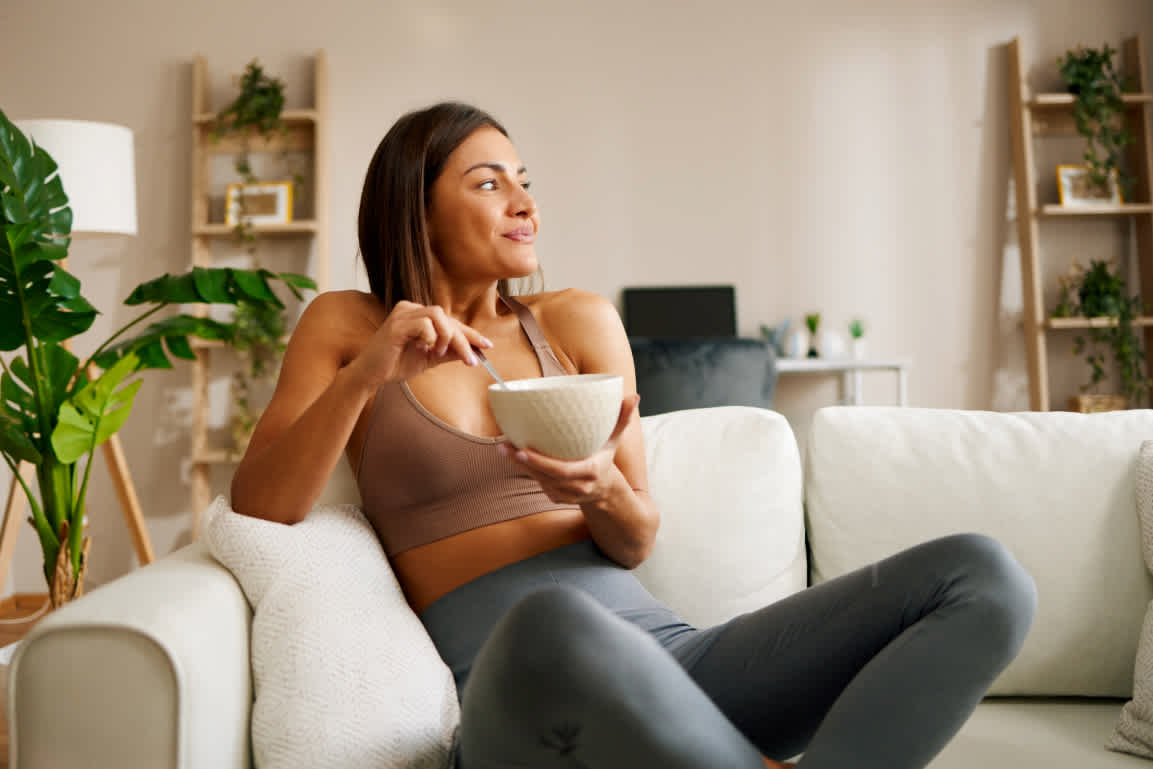Manage Endometriosis Symptoms Through Diet and Lifestyle Changes
Take control of your health with the Women’s Wellness Program for eligible nib members
Functional nutrition and lifestyle practitioner, Helen Cross knows what it’s like to live with the painful symptoms of endometriosis. After years of debilitating pain she was finally diagnosed at 30 leading to multiple surgeries, including a hysterectomy. But even after the surgeries, she still struggled with the painful symptoms of endometriosis.
Helen decided to take a more holistic approach, making changes to her diet and lifestyle to help manage the chronic condition. She transformed her health and found a passion for empowering women to heal themselves and improve their quality of life.
With a master’s degree in health coaching, Helen provides health and wellness coaching programs to Kiwi women suffering from a wide range of chronic conditions. She also provides one-on-one coaching to eligible nib members through the Women’s Wellness Program, supporting and empowering women who have been diagnosed with endometriosis including those who have recently had surgery. Over 95% of members have had a significant reduction in pain or improvement of quality of life.
Understanding your symptoms and the underlying causes
“I love partnering with clients on their health journey and helping them discover their unique path to optimal health,” Helen Cross.
Before recommending any lifestyle and dietary changes, Helen explores each client's endometriosis history. This includes discussing their main symptoms, underlying causes and health goals enabling them to design a healing path forward together.
Endometriosis symptoms can be complex and often overlap with those of other conditions such as Irritable Bowel Syndrome (IBS) and Polycystic Ovarian Syndrome (PCOS). Common symptoms of endometriosis include painful periods, bowel problems, infertility, fatigue, PMS, UTIs, abnormal menstrual bleeding and pain. Helen guides her clients in monitoring their symptoms while they implement dietary and lifestyle modifications, helping them recognise any improvements.
Helen encourages clients to think about nutrition and lifestyle as the building blocks of healing. Helen has developed 12 top Nutrition and 12 top Lifestyle tips which she coaches clients through in the Women’s Wellness program. She shares some of her tips below:
Nutrition
-
Optimise your protein – start the day with a protein rich meal and ensure all your meals have some quality protein in it.
-
Decrease inflammatory foods – all processed foods and foods high in sugar are inflammatory and best to be minimised. Focus on a whole foods based diet.
-
Focus on meal timing - one of the Ayurvedic principles, dating back 5,000 years, emphasises the significant health benefits of eating meals and sleeping at consistent times. Focus on having three healthy regular meals a day.
Lifestyle
-
Prioritise Sleep - sleep is one of the most important things you can do for your body to build resilience and heal. Try the Power Down Hour for better sleep. 20mins Preparation (getting ready for the next day, finishing work, emails, packing kids back packs, making lunch), 20mins Nightly Hygiene (getting ready for bed, washing face, brushing teeth, hot bath or shower), 20mins Relax (lie in the dark and practise relaxation techniques, meditation, or prayer).
-
Movement – regular movement is key for optimal physical and mental health and can help increase energy levels, reduce pain and stress. But no one form of exercise will work for everyone. Be gentle and start slow. You should feel invigorated and not in pain after exercising. Experiment with walking, running, biking, swimming, yoga, pilates, dancing and simple strength exercises to find what works best for you and gives you the most joy.
-
Get out in nature – Aligning with the natural circadian rhythm—our internal clock—is crucial for maintaining physical and mental health. This involves waking up with the sunlight to reset our biological clock, ensuring ample exposure to natural light during the day to boost vitamin D levels and improve mood, and minimising exposure to blue light from screens in the evening to support healthy sleep patterns.
With our busy lifestyles it can be hard to find the time to cook a healthy meal or exercise, but small changes can make a big difference. The key to success is making incremental changes that are easy to implement and setting realistic goals. This is where having individualised guidance and support can make all the difference. Sometimes it’s hard to know what changes to make or where to start.
For more information on how Helen Cross and our Women’s Wellness programme could help you to manage your endometriosis symptoms, including eligibility criteria for nib members, visit health.nib.co.nz/health-management-programmes
Want to know more?
